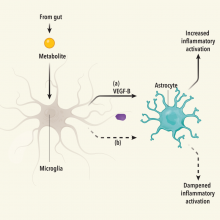Myelin is the insulating material on nerve cell projections in the brain and spinal cord that are important for brain growth and repair. Much like the insulation around an electrical wire, myelin allows electrical impulses to transmit rapidly and efficiently from one cell to the next in the brain and in the spinal cord.
According to an animal study published in The Journal of Neuroscience, production of cells that go on to form myelin increased during sleep. These findings may lead to new understanding of how sleep and the lack of it may repair or damage the brain.
Scientists have known for years that many genes are turned on during sleep and off during periods of wakefulness. However, it was unclear how sleep affects specific cells types, such as oligodendrocytes, which make myelin in the healthy brain and in response to injury.
The study
In this study, researchers at the University of Wisconsin, Madison, measured gene activity in oligodendrocytes from mice that slept or were forced to stay awake.
They found that genes promoting myelin formation were turned on during sleep. In contrast, the genes implicated in cell death and the cellular stress responses were turned on in those forced to stay awake.
Additional analysis revealed that the production of oligodendrocyte precursor cells (OPCs) — cells that become oligodendrocytes — doubles during sleep, particularly during rapid eye movement (REM) stage of sleep associated with dreaming.
For a long time, sleep studies have focused on how the activity of nerve cells differs when animals are awake versus when they are asleep. This study shows supporting cells in the nervous system other than nerve cells also changed significantly during sleeping.
Additionally, researchers suggest that extreme and/or chronic sleep loss possibly aggravate some symptoms of multiple sclerosis (MS), a disease that damages myelin. Association between sleep patterns and severity of MS symptoms may be worth examining.





